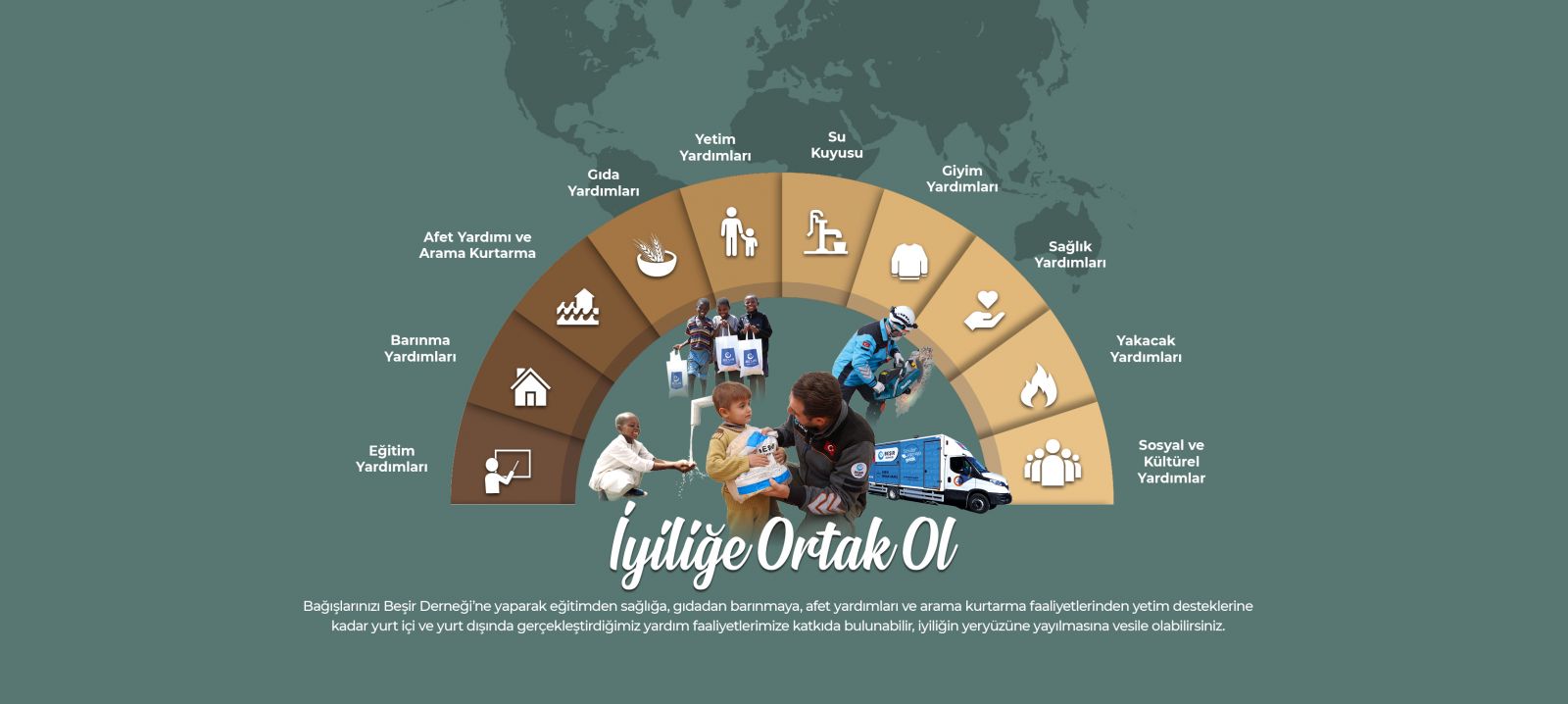AMAÇ
Her bireyin kendisi ile ilgili kişisel verilerin korunmasını isteme hakkı Anayasa’dan doğan bir haktır. Beşir Derneği olarak bu hakkın gereklerini yerine getirmeyi en değerli görevlerimizden biri olarak kabul ediyoruz. Bu nedenle kişisel verilerinizin hukuka uygun olarak işlenmesine ve korunmasına önem veriyoruz.
Kurumsal Kişisel Verilerin Korunması Politikası da kişisel verilerin korunmasına verdiğimiz önemin bir sonucu olarak kişisel verileri işlerken ve korurken temel aldığımız ilkeleri ve uyguladığımız prosedürleri belirlemek amacıyla hazırlanmıştır.
KAPSAM
Politika Beşir Derneği’nin yönettiği bütün kişisel veriler verilerin tamamen veya kısmen otomatik olan ya da herhangi bir veri kayıt sisteminin parçası olmak kaydıyla otomatik olan/olmayan yollarla elde edilmesi, kaydedilmesi, depolanması, muhafaza edilmesi, değiştirilmesi, yeniden düzenlenmesi, açıklanması, aktarılması, devralınması, elde edilebilir hâle getirilmesi, sınıflandırılması ya da kullanılmasının engellenmesi gibi veriler üzerinde gerçekleştirilen her türlü işlemi kapsamaktadır.
Politika Beşir Derneği’nin ortaklarının, yetkililerinin, müşterilerinin, çalışanlarının, tedarikçi yetkililerinin ve çalışanlarının ve üçüncü kişilerin işlenen tüm kişisel verilerine ilişkindir.
Beşir Derneği Politika’yı mevzuata ve Kişisel Verileri Koruma Kurumu’nun kararlarına uyum ve kişisel verilerin daha iyi korunması amaçlarıyla değiştirebilir.
TANIMLAR
| Kısaltma | Tanım |
| Alıcı Grubu | Veri sorumlusu tarafından kişisel verilerin aktarıldığı gerçek veya tüzel kişi kategorisi. |
| Açık Rıza | Belirli konuya ilişkin, bilgilendirilmeye dayanan ve özgür iradeyle açıklanan rıza. |
| Anonim Hale Getirme | Kişisel verilerin, başka verilerle eşleştirilerek dahi hiçbir surette kimliği belirli veya belirlenebilir bir gerçek kişiyle ilişkilendirilemeyecek hale getirilmesi. |
| İlgili Kişi | Kişisel verisi işlenen gerçek kişi. |
| İlgili Kullanıcı | Verilerin teknik olarak depolanması, korunması ve yedeklenmesinden sorumlu olan kişi ya da birim hariç olmak üzere veri sorumlusu organizasyonu içerisinde veya veri sorumlusundan aldığı yetki ve talimat doğrultusunda kişisel verileri işleyen kişilerdir. |
| İmha | Kişisel verilerin silinmesi, yok edilmesi veya anonim hale getirilmesi. |
| Kanun/KVKK | 6698 Sayılı Kişisel Verilerin Korunması Kanunu. |
| Kayıt Ortamı | Tamamen veya kısmen otomatik olan ya da herhangi bir veri kayıt sisteminin parçası olmak kaydıyla otomatik olmayan yollarla işlenen kişisel verilerin bulunduğu her türlü ortam. |
| Kişisel Veri | Kimliği belirli veya belirlenebilir gerçek kişiye ilişkin her türlü bilgi. |
| Veri Envanteri | Veri sorumlularının iş süreçlerine bağlı olarak gerçekleştirmekte oldukları kişisel verileri işleme faaliyetlerini; kişisel verileri işleme amaçları ve hukuki sebebi, veri kategorisi, aktarılan alıcı grubu ve veri konusu kişi grubuyla ilişkilendirerek oluşturdukları ve kişisel verilerin işlendikleri amaçlar için gerekli olan azami muhafaza edilme süresini, yabancı ülkelere aktarımı öngörülen kişisel verileri ve veri güvenliğine ilişkin alınan tedbirleri açıklayarak detaylandırdıkları envanter. |
| Kişisel Verilerin İşlenmesi | Kişisel verilerin tamamen veya kısmen otomatik olan ya da herhangi bir veri kayıt sisteminin parçası olmak kaydıyla otomatik olmayan yollarla elde edilmesi, kaydedilmesi, depolanması, muhafaza edilmesi, değiştirilmesi, yeniden düzenlenmesi, açıklanması, aktarılması, devralınması, elde edilebilir hâle getirilmesi, sınıflandırılması ya da kullanılmasının engellenmesi gibi veriler üzerinde gerçekleştirilen her türlü işlem. |
GENEL İLKELER
Beşir Derneği her yeni kişisel veri işlemeyi gerektiren iş akışının hazırlık aşamasında işlenecek verilerin aşağıdaki ilkelere uygunluğunu denetler. Uygun bulunmayan iş akışları hayata geçirilmez.
Beşir Derneği kişisel verileri işlerken;
- Hukuka ve dürüstlük kurallarına uyar.
- Kişisel verilerin doğru ve gerektiğinde güncel olduğundan emin olur.
- İşleme amacının belirli, açık ve meşru olmasına dikkat eder.
- İşlenen verinin işlenme amacıyla bağlantılı olduğunu, işlenilmesi gerektiği kadarıyla sınırlı işlendiğini ve ölçülü olduğunu kontrol eder.
- Verileri ancak ilgili mevzuatta öngörörülen veya işlenme amacı için gerekli olduğu kadar muhafaza eder, işlenme amacı ortadan kalktığında imha eder.
VERİ GÜVENLİĞİ İÇİN ALINAN TEDBİRLER
Beşir Derneği kişisel verilerin hukuka aykırı olarak işlenmesini önlemek, kişisel verilere hukuka aykırı olarak erişilmesini önlemek, kişisel verilerin muhafazasını sağlamak amacıyla uygun güvenlik düzeyini temin etmeye yönelik gerekli her türlü teknik ve idari tedbirleri alır.






